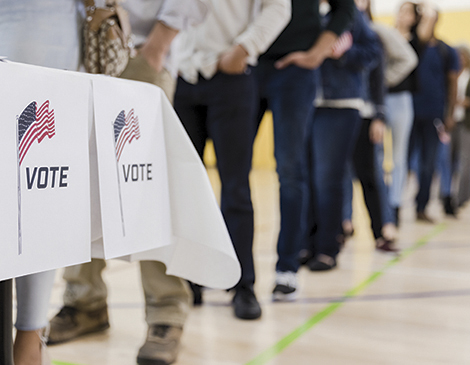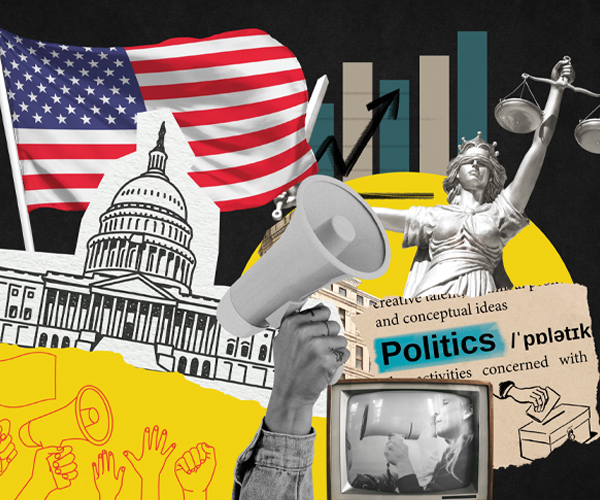I write this column as the Nov. 3, 2020, presidential election fast approaches, and I have two predictions about the outcome.
First, neither candidate will have a mandate. For our country to begin to heal and for our next president to succeed, we can ill afford a sore loser or an arrogant winner.
I know something about close elections. In 1990, I was elected Ohio attorney general in the closest statewide election in Ohio history. My margin is easy to remember: 1,234 votes out of 3.4 million votes cast, less than one vote per precinct, earning me the nickname, “Landslide Lee.” Under Ohio law, there was an automatic recount, and six weeks later, I was declared the winner.
Although I was sworn in on Jan. 14, 1991, my opponent filed a lawsuit contesting the election. On March 11, 1991, the Ohio Supreme Court, in an opinion written by Chief Justice Thomas Moyer, ruled unanimously that I could unpack my boxes.
It was a humbling experience. I used to joke that I could walk anywhere in Ohio, talk to any person, and know that there was good chance that person did not vote for me.
That election made me appreciate that there is no such thing as a mandate. Whoever wins, regardless of their electoral or popular vote margin, would be well-advised to remember that a very significant number of citizens did not vote for them. Our next president does not have a mandate to ignore, patronize, or stampede the political opposition in order to advance an agenda.
Second, the next president inherits a divided country and a dysfunctional, hyper-partisan Congress. His single most important presidential responsibility is not reducing the cost of health care or rebuilding the economy. It’s rebuilding the human bridges of a divided nation that is coming apart at its seams. It’s too simplistic to label the current division as red vs. blue or liberal vs. conservative. We are divided along demographic and geographic fault lines — race, culture, gender, generation, education, income and rural vs. urban. Too many Americans feel left out of the growing economic prosperity in many of our cities and metro regions. There is a growing disconnect between the older, primarily working class, whites and our increasingly diverse and globalized country.
Rapidly accelerating technology and globalization, blurred lines between objective news, biased news and fake news, all-too-frequent police shootings of people of color and growing racial and cultural diversity — all of these things have the capacity to unite us through hope, dignity, respect and progress, or tear us further apart through anxiety, fear, bigotry and scapegoating. Most of us engage in what is called “confirmation bias.” Everything we look for and all that we perceive has a way of proving whatever we believe. That is, we search for or interpret information in a way that confirms our own preconceptions. We actively seek out and assign more weight to evidence that confirms our views, and ignore or under weigh evidence that contradicts our views. This tendency to look for people and information that confirms our own views has been accelerated and enhanced by television opinion channels masquerading as news channels and by Google, Facebook and other internet and social media platforms that use the personal data they collect about us to tailor our online experiences.
The result is that most of us live in what is referred to as a “filter bubble.” We receive information that confirms our beliefs rather than challenges them, leaving us in media and digital echo chambers.
It is my hope that we can use the outcome of this presidential election as one of those teachable moments that helps us get out of our bubbles.
Virtually every war, every conflict, every argument, every debate and every divorce comes down to just one thing — not listening. Today, especially in our national politics, we talk past each other, deliberately ignoring points of agreement for fear of losing political points and advantage. For our country to begin to heal, we must remind each other of our common destiny.
All of us have a mandate to do a much better job of talking and listening to each other across demographic, racial, political and ideological lines.
It starts with our next president, who must appeal, in President Abraham Lincoln’s words, to “the better angels of our nature.”
Lee Fisher is dean of Cleveland-Marshall College of Law at Cleveland State University. He is the former Ohio attorney general, lieutenant governor, director of the Ohio Department of Development, chair of the Ohio Third Frontier Commission, president and CEO of the Center for Families and Children, president and CEO of CEOs for Cities, state representative and state senator.




